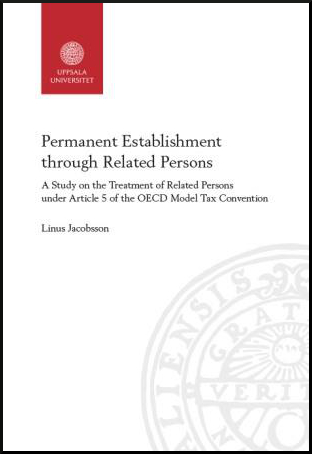 Globalization, changed business practices and the developments in information technology have put pressure on the PE concept. This thesis deals with related persons and the PE concept, and the increasing tension between them. Globalization, changed business practices and the developments in information technology have put pressure on the PE concept. This thesis deals with related persons and the PE concept, and the increasing tension between them.
The main objective of the thesis is to analyze and define the scope of the PE concept, when applied to related persons. To meet this objective, the thesis is focused on three research questions. Initially, a theoretical foundation regarding the PE concept is established. It is concluded that the PE concept’s underlying principles are the notions of source, equity and basic neutrality.
The first research question deals with the scope of the “related company clause” in Article 5(7) of the OECD MTC. To answer this, the history and underlying principles and theories of the related person PE are analyzed. It is concluded that the related person PE should be understood as including two distinct taxpayers and that the “related company clause” has no substantive scope.
The second research question deals with the application of the PE concept to situations with related persons. It is established that the central question is whose business is being conducted. It is argued that this is a substance-over-form assessment and that guidance should be had from the dependency test in the agency clause, i.e. legal control and economic relationship.
The third research question concerns what function the PE concept has, and should have, when it comes to preventing tax avoidance. It is argued that applying substance-over-form, not inherent to a specific PE condition, should be limited to preventing abuse. To determine if a situation is abusive, one should compare the outcome with the PE concept’s underlying principles. If the result is unintended and contrary to the underlying principles, it is an abuse of the PE concept, provided that this is achieved intentionally by the taxpayer. |
 Globalization, changed business practices and the developments in information technology have put pressure on the PE concept. This thesis deals with related persons and the PE concept, and the increasing tension between them.
Globalization, changed business practices and the developments in information technology have put pressure on the PE concept. This thesis deals with related persons and the PE concept, and the increasing tension between them.